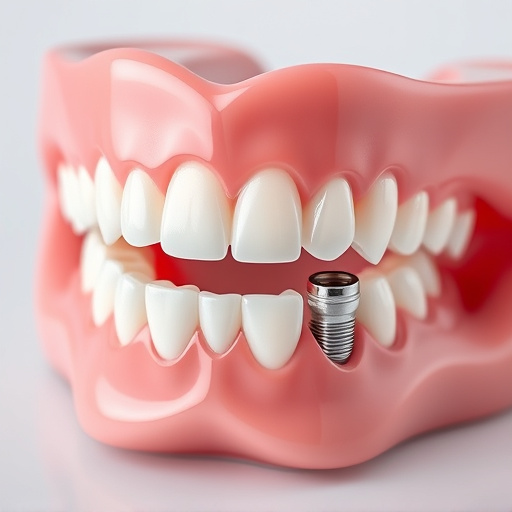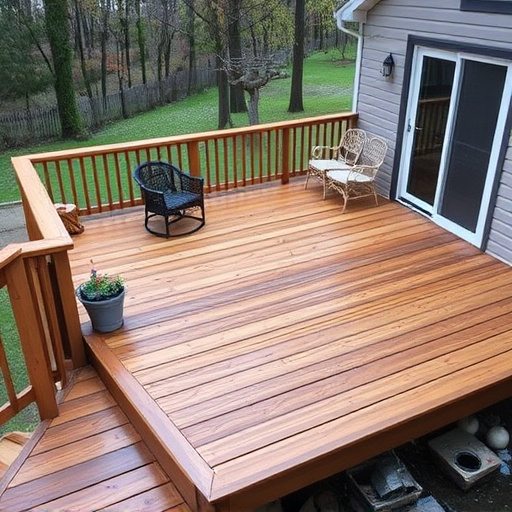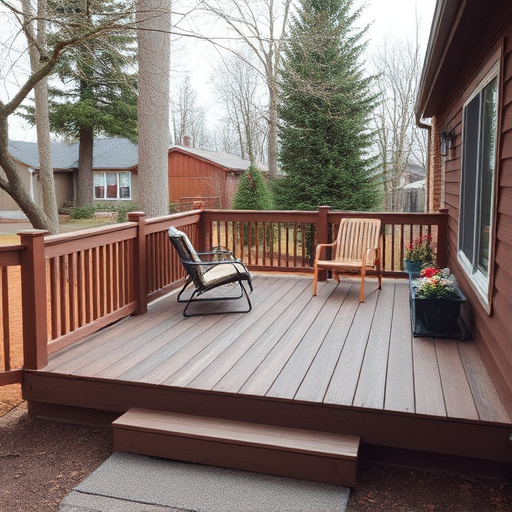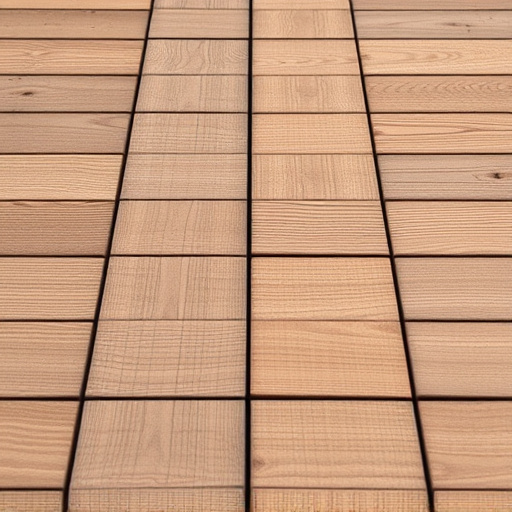Oil-based deck sealing products offer superior water repellency, stain resistance, and durability but contain harmful solvents. Water-based alternatives are eco-friendly, have lower odor levels, and provide good UV protection but require more frequent reapplication. Both types ensure structural integrity by preventing moisture intrusion and rot, with water-based sealants excelling in UV resistance and ease of application, ideal for residential use. Oil-based sealants provide a robust finish but need more preparation and cleaning, suitable for commercial projects. Choosing between them depends on desired durability, environmental considerations, and application preferences.
When it comes to protecting your deck, choosing the right sealing product is crucial. This article delves into the world of deck sealing by comparing oil-based and water-based options. We explore the unique advantages of each, from the long-lasting protection of oils to the eco-friendly benefits of water-based alternatives. By examining durability, application ease, and maintenance requirements, you’ll gain insights to make an informed decision for your decking needs.
- Understanding Oil-Based Deck Sealing Advantages
- Water-Based Alternatives: Benefits and Considerations
- Performance Comparison: Durability, Application, and Maintenance
Understanding Oil-Based Deck Sealing Advantages

Oil-based deck sealing products have been a trusted choice for many years due to their distinct advantages. One of the key benefits is their superior water repellency, making them highly effective in protecting decks from moisture intrusion, which can cause rot and weaken structural integrity. This property also ensures that the deck remains stain-resistant, preserving its original beauty over time. Additionally, oil-based sealers tend to have a longer lifespan than their water-based counterparts, providing long-lasting protection even under harsh weather conditions.
For both residential and commercial deck sealing, professionals often prefer oil-based options for their durability and ease of application. Unlike water-based sealers that may require multiple coats for optimal coverage, oil-based formulations typically need only one thick coat, saving time and labor costs in the long run. This feature is especially beneficial when dealing with large or complex home exterior services projects, ensuring a more efficient and cost-effective solution. Moreover, their versatility allows them to be applied over various deck surfaces, making them suitable for both new and old decks alike, including those with commercial roofing.
Water-Based Alternatives: Benefits and Considerations

Water-based alternatives for deck sealing have gained popularity due to their numerous benefits. Firstly, they are considered more environmentally friendly as they do not contain harmful solvents, making them a safer option for both users and the surrounding ecosystem. This makes water-based sealers an attractive choice for those prioritizing sustainability in their storm damage repair or roofing services. Secondly, these products often offer excellent penetration and bonding, ensuring that the wood fibers are sealed and protected. As a result, they can effectively prevent water absorption, which is crucial for siding repairs and maintaining the overall integrity of wooden structures.
Moreover, water-based deck sealing solutions typically have lower odor levels and are less volatile, making application easier and safer in enclosed spaces. They also provide good to excellent UV protection, preventing the wood from fading or cracking due to prolonged sun exposure. Despite these advantages, it’s worth noting that they might require more frequent reapplication compared to oil-based sealers, especially in areas with harsh weather conditions or heavy foot traffic. However, their overall performance and growing availability make them a compelling choice for those seeking modern, eco-conscious solutions in deck sealing and related home exterior services.
Performance Comparison: Durability, Application, and Maintenance

When comparing oil-based and water-based deck sealing products, durability is a key performance metric. Water-based sealants typically offer superior longevity, resisting degradation from UV rays and extreme weather conditions better than their oil-based counterparts. This makes them a preferred choice for long-term protection of wooden decks, ensuring they stand the test of time without chipping or peeling.
Application ease and maintenance are also notable differences. Water-based sealants generally have a lower odor and are easier to apply, requiring less preparation and making them ideal for residential roofing and siding repairs. They dry faster, too, allowing homeowners to get back to enjoying their outdoor spaces sooner. In contrast, oil-based sealants may require more extensive cleaning and preparation before application but can provide a more robust finish, although they might necessitate more frequent reapplication as part of regular home service solutions.
When it comes to deck sealing, both oil-based and water-based products offer unique advantages. Oil-based sealers provide superior durability and protection against UV rays, while water-based alternatives are more environmentally friendly, easier to apply, and require less downtime for curing. Ultimately, the best choice depends on your specific needs, deck conditions, and personal preferences. By understanding the benefits and considerations of each type, you can make an informed decision to ensure your deck remains protected and looking its best for years to come.














